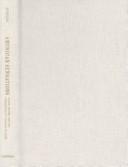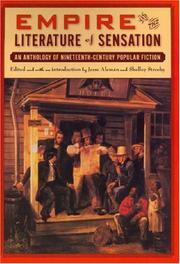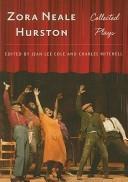| Listing 1 - 10 of 15 | << page >> |
Sort by
|

ISBN: 0520229452 0520223144 9786612762505 052093587X 1282762508 9780520935877 0585419639 9780585419633 9780520223141 9780520229457 9781282762503 6612762500 Year: 2002 Publisher: Berkeley : University of California Press,
Abstract | Keywords | Export | Availability | Bookmark
 Loading...
Loading...Choose an application
- Reference Manager
- EndNote
- RefWorks (Direct export to RefWorks)
This innovative cultural history investigates an intriguing, thrilling, and often lurid assortment of sensational literature that was extremely popular in the United States in 1848--including dime novels, cheap story paper literature, and journalism for working-class Americans. Shelley Streeby uncovers themes and images in this "literature of sensation" that reveal the profound influence that the U.S.-Mexican War and other nineteenth-century imperial ventures throughout the Americas had on U.S. politics and culture. Streeby's analysis of this fascinating body of popular literature and mass culture broadens into a sweeping demonstration of the importance of the concept of empire for understanding U.S. history and literature. This accessible, interdisciplinary book brilliantly analyzes the sensational literature of George Lippard, A.J.H Duganne, Ned Buntline, Metta Victor, Mary Denison, John Rollin Ridge, Louisa May Alcott, and many other writers. Streeby also discusses antiwar articles in the labor and land reform press; ideas about Mexico, Cuba, and Nicaragua in popular culture; and much more. Although the Civil War has traditionally been a major period marker in U.S. history and literature, Streeby proposes a major paradigm shift by using mass culture to show that the U.S.-Mexican War and other conflicts with Mexicans and Native Americans in the borderlands were fundamental in forming the complex nexus of race, gender, and class in the United States.
Classes sociales dans la littérature --- Ethnic groups in literature --- Ethnische groepen in de literatuur --- Groupes ethniques dans la littérature --- Imperialism in literature --- Imperialisme in de literatuur --- Impérialisme dans la littérature --- Nativism in literature --- Race dans la littérature --- Race in literature --- Ras in de literatuur --- Sensatiezucht in de literatuur --- Sensationalism in literature --- Sensationnalisme dans la littérature --- Social classes in literature --- Sociale klassen in de literatuur --- 19th century. --- American fiction. --- American fiction-- 19th century-- History and criticism. --- Literature and society - United States - History - 19th century. --- Popular literature. --- Popular literature - United States - History and criticism. --- Sociology of literature --- Fiction --- American literature --- anno 1800-1899 --- American fiction --- Popular literature --- Literature and society --- Social classes in literature. --- Sensationalism in literature. --- Ethnic groups in literature. --- Imperialism in literature. --- Nativism in literature. --- Race in literature. --- History and criticism. --- History --- 19th century --- History and criticism --- United States --- Lippard, George --- Criticism and interpretation --- Buntline, Ned --- Murieta, Joaquin --- 1800s. --- academic. --- american culture. --- american history. --- amnesia. --- anti imperialism. --- class issues. --- class. --- classism. --- cultural studies. --- empire. --- factory workers. --- imperial. --- imperialism. --- plantation. --- pop culture history. --- pop culture. --- popular culture. --- race issues. --- race. --- racism. --- romance. --- scholarly. --- united states history. --- us history. --- us mexican war. --- wartime. --- world history.
Book
ISBN: 0520967550 9780520967557 9780520294448 0520294440 9780520294455 0520294459 Year: 2018 Publisher: Oakland, California
Abstract | Keywords | Export | Availability | Bookmark
 Loading...
Loading...Choose an application
- Reference Manager
- EndNote
- RefWorks (Direct export to RefWorks)
From the 1960's to the present, activists, artists, and science fiction writers have imagined the consequences of climate change and its impacts on our future. Authors such as Octavia Butler and Leslie Marmon Silko, movie directors such as Bong Joon-Ho, and creators of digital media such as the makers of the Maori web series Anamata Future News have all envisioned future worlds during and after environmental collapse, engaging audiences to think about the earth's sustainability. As public awareness of climate change has grown, so has the popularity of works of climate fiction that connect science with activism. Today, real-world social movements helmed by Indigenous people and people of color are leading the way against the greatest threat to our environment: the fossil fuel industry. Their stories and movements-in the real world and through science fiction-help us all better understand the relationship between activism and culture, and how both can be valuable tools in creating our future. Imagining the Future of Climate Change introduces readers to the history and most significant flashpoints in climate justice through speculative fictions and social movements, exploring post-disaster possibilities and the art of world-making.
Climatic changes. --- Global warming. --- Ethnoecology --- Global warming --- Warming, Global --- Global temperature changes --- Greenhouse effect, Atmospheric --- Changes, Climatic --- Changes in climate --- Climate change --- Climate change science --- Climate changes --- Climate variations --- Climatic change --- Climatic changes --- Climatic fluctuations --- Climatic variations --- Global climate changes --- Global climatic changes --- Climatology --- Climate change mitigation --- Teleconnections (Climatology) --- Indigenous peoples --- Human ecology --- Traditional ecological knowledge --- Environmental aspects --- Ecology --- Aktivismus. --- Klimaänderung. --- Science-Fiction. --- Soziale Bewegung. --- Zukunft. --- Ecology. --- USA. --- United States. --- Global environmental change --- biologist. --- climate change. --- climate justice. --- digital media. --- ecologist. --- impact of global warming. --- marine biologist. --- preservation. --- science fiction. --- sustainability. --- sustainable lifestyle. --- what happens during climate change.
Book
ISBN: 082235280X 0822352915 0822395541 1299224008 Year: 2013 Publisher: Duke University Press
Abstract | Keywords | Export | Availability | Bookmark
 Loading...
Loading...Choose an application
- Reference Manager
- EndNote
- RefWorks (Direct export to RefWorks)
Book
ISBN: 1479862703 9781479862702 9781479816682 9781479831968 147981668X Year: 2021 Publisher: New York : New York University Press,
Abstract | Keywords | Export | Availability | Bookmark
 Loading...
Loading...Choose an application
- Reference Manager
- EndNote
- RefWorks (Direct export to RefWorks)
Across more than fifty essays, Keywords for Comics Studies provides a rich, interdisciplinary vocabulary for comics and sequential art, and identifies new avenues of research into one of the most popular and diverse visual media of the twentieth and twenty-first century. In an original twist on the NYU Keywords mission, the terms in this volume combine attention to the unique aesthetic practices of a distinct medium, comics, with some of the most fundamental concepts of the humanities broadly. Readers will see how scholars, cultural critics, and comics artists from a range of fields-including media and film studies, queer and feminist theory, and critical race and transgender studies among others-take up sequential art as both an object of analysis and a medium for developing new theories about embodiment, identity, literacy, audience reception, genre, cultural politics and more. To do so, Keywords for Comics Studies presents an array of original and inventive analyses of terms central to the study of comics and sequential art, but traditionally siloed in distinct lexicons: these include creative or aesthetic terms like Ink, Creator, Border, and Panel; conceptual terms like trans*, disability, universe, and fantasy; genre terms, like Zine, Pornography, Superhero, and Manga; and canonical terms like X-Men, Archie, Watchmen and Love and Rockets. Written as much for students and lay readers as professors and experts in the field, Keywords for Comics Studies revivifies the fantasy and magic of reading comics in its kaleidoscopic view of the field's most compelling and imaginative ideas
Comic books, strips, etc --- History and criticism --- Comic books, strips, etc. --- Bandes dessinées. --- Sémiotique et bandes dessinées --- Semiotics. --- History and criticism.
Digital
ISBN: 9781479862702 9781479816682 Year: 2021 Publisher: New York, N.Y. New York University Press
Abstract | Keywords | Export | Availability | Bookmark
 Loading...
Loading...Choose an application
- Reference Manager
- EndNote
- RefWorks (Direct export to RefWorks)


ISBN: 1281151297 9786611151294 0813541417 0813540755 Year: 2007 Publisher: Rutgers University Press
Abstract | Keywords | Export | Availability | Bookmark
 Loading...
Loading...Choose an application
- Reference Manager
- EndNote
- RefWorks (Direct export to RefWorks)
Mid-nineteenth-century American literature teems with the energy and excitement characteristic of the nation's era of expansion. It also reveals the intense anxiety and conflict of a country struggling with what it will mean, socially and culturally, to incorporate previously held Spanish territories. Empire and the Literature of Sensation is a critical anthology of some of the most popular and sensational writings published before the Civil War. It is a collection of transvestite adventures, forbidden love, class conflict, and terrifying encounters with racial "others." Most of the accounts, although widely distributed in nineteenth-century newspapers, pamphlets, or dime store novels, have long been out of print. Reprinted here for the first time are novelettes by two superstars of the cheap fiction industry, Ned Buntline and George Lippard. Also included are selections from one of the first dime novels as well as the narratives of Leonora Siddons and Sophia Delaplain, both who claim in their autobiographical pamphlets to have cross-dressed as men and participated in the Texas rebellion and Cuban filibustering. Originally written for entertainment and enormously popular in their day, these sensational thrillers reveal for today's audiences how the rhetoric of empire was circulated for mass consumption and how imperialism generated domestic and cultural instability during the period of the American literary renaissance.
American fiction --- Popular literature --- Imperialism --- Indigenous peoples --- Literature, Popular --- Books and reading --- Popular culture --- Aboriginal peoples --- Aborigines --- Adivasis --- Indigenous populations --- Native peoples --- Native races --- Ethnology
Book

ISBN: 9780813541419 Year: 2007 Publisher: New Brunswick, NJ
Abstract | Keywords | Export | Availability | Bookmark
 Loading...
Loading...Choose an application
- Reference Manager
- EndNote
- RefWorks (Direct export to RefWorks)

ISBN: 9780813541419 9780813540757 Year: 2007 Publisher: New Brunswick, N.J. Rutgers University Press
Abstract | Keywords | Export | Availability | Bookmark
 Loading...
Loading...Choose an application
- Reference Manager
- EndNote
- RefWorks (Direct export to RefWorks)
Multi

ISBN: 9780292737198 Year: 2021 Publisher: Austin, Tex. University of Texas Press
Abstract | Keywords | Export | Availability | Bookmark
 Loading...
Loading...Choose an application
- Reference Manager
- EndNote
- RefWorks (Direct export to RefWorks)


ISBN: 1281776432 9786611776435 0813545129 081354291X Year: 2008 Publisher: Rutgers University Press
Abstract | Keywords | Export | Availability | Bookmark
 Loading...
Loading...Choose an application
- Reference Manager
- EndNote
- RefWorks (Direct export to RefWorks)
Though she died penniless and forgotten, Zora Neale Hurston is now recognized as a major figure in African American literature. Best known for her 1937 novel Their Eyes Were Watching God, she also published numerous short stories and essays, three other novels, and two books on black folklore. Even avid readers of Hurston's prose, however, may be surprised to know that she was also a serious and ambitious playwright throughout her career. Although several of her plays were produced during her lifetime-and some to public acclaim-they have languished in obscurity for years. Even now, most critics and historians gloss over these texts, treating them as supplementary material for understanding her novels. Yet, Hurston's dramatic works stand on their own merits and independently of her fiction. Now, eleven of these forgotten dramatic writings are being published together for the first time in this carefully edited and annotated volume. Filled with lively characters, vibrant images of rural and city life, biblical and folk tales, voodoo, and, most importantly, the blues, readers will discover a "real Negro theater" that embraces all the richness of black life.
American drama. --- American literature --- Hurston, Zora Neale. --- Hurston, Zora Neale
| Listing 1 - 10 of 15 | << page >> |
Sort by
|

 Search
Search Feedback
Feedback About UniCat
About UniCat  Help
Help News
News